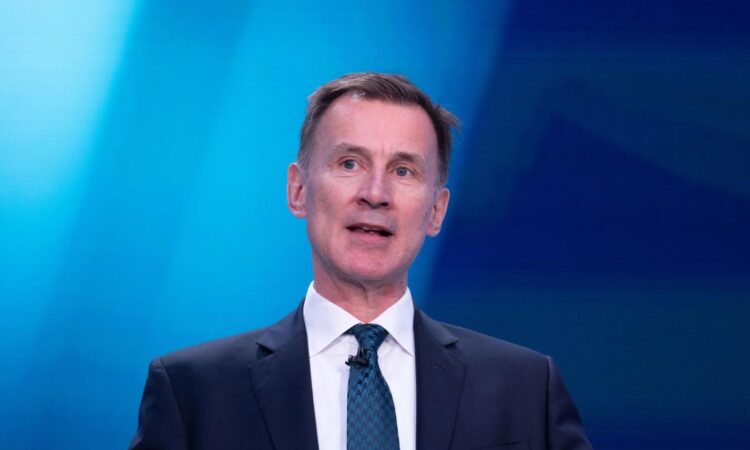
(Bloomberg) — UK Chancellor of the Exchequer Jeremy Hunt is considering cuts to public spending to make room for voter-friendly tax giveaways in his spring Budget, as the governing Conservative Party seeks a boost ahead of a general election expected later this year.
Most Read from Bloomberg
Reducing public spending is one option being examined by Hunt amid growing concern in the Treasury that he could have limited funds available for his fiscal event on March 6, according to a person familiar with the matter.
Hunt’s so-called fiscal headroom — the amount he can spend before breaching the government’s own fiscal rules — has deteriorated since his Autumn Statement in November. The Office for Budget Responsibility told the chancellor last month he has about £14 billion ($17.6 billion) to spare, Bloomberg reported.
Read more: UK’s Hunt Warns Limited Room for Tax Cuts in March Budget
The Treasury is now mulling whether to reduce projected public spending rises to around 0.75 percentage points a year — down from one percentage point — which could release between £5 billion and £6 billion for tax cuts, the Financial Times reported late Wednesday, citing unidentified Treasury sources.
The Treasury did not immediately respond to requests for comment.
Hunt is under mounting pressure from within the Conservative Party to announce significant tax cuts to help close a poll gap against Keir Starmer’s Labour Party, which hopes to take power after 14 years in opposition. The Budget is seen as one of the few set-piece moments remaining before the next general election where the Tories can try to win back favor with the public.
Still, further squeezing public services in real terms comes with its own political risks following a decade of austerity under the Conservatives and growing public disquiet with the state of core services including health, criminal justice and transport.
Last month the International Monetary Fund warned the UK government that it should not cut taxes in the budget because it needs the money to invest in public services and get the national debt under control.
Headroom of around £14 billion would lag the historic average and be lower than some economists had projected, with Bloomberg Economics previously forecasting headroom of between £17 billion and £25 billion.
Most Read from Bloomberg Businessweek
©2024 Bloomberg L.P.






